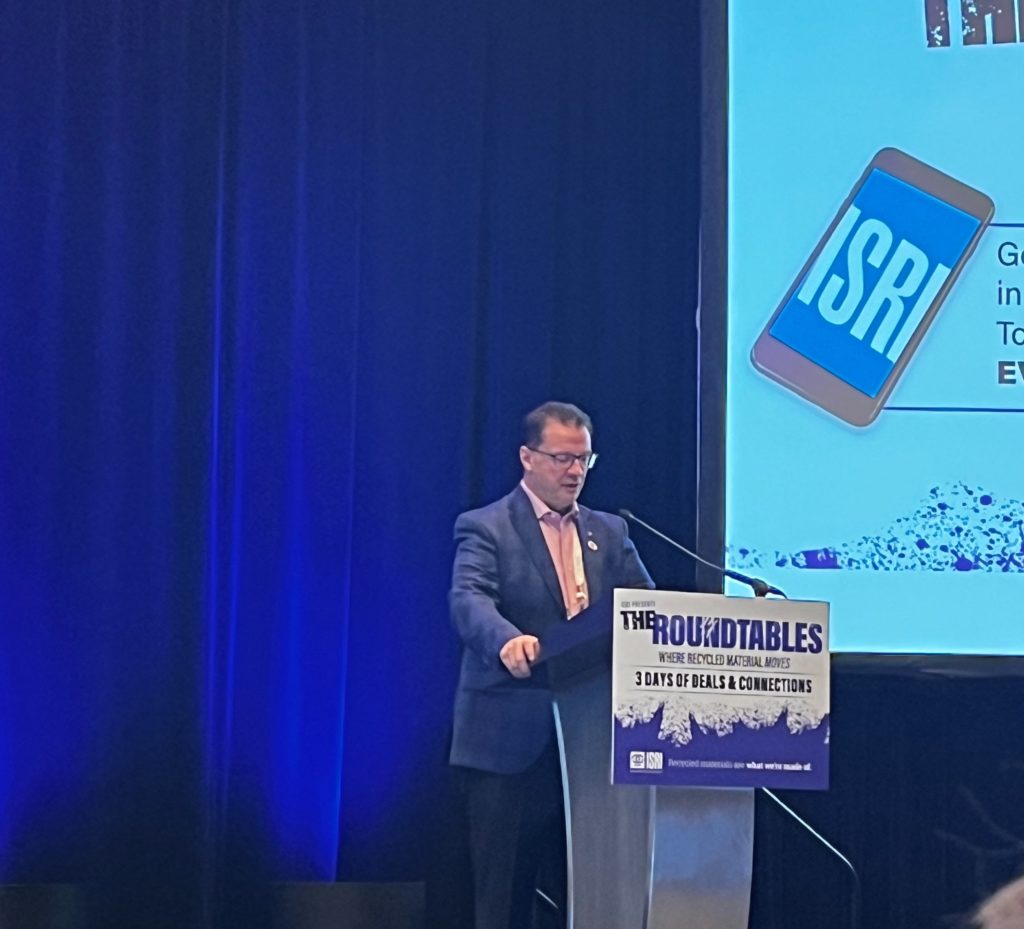In this special event series, ISRI News is in Chicago covering The Roundtables. The annual event attracts processors, brokers, traders and other recycling professionals from around the world.
ISRI Chair Brian Henesey kicked off this year’s The Roundtables by announcing that over 1,000 attendees are taking part in it this week — the largest number ever registered. The three-day event then went into a discussion on the current ferrous market. Adam Dumes, chief commercial officer at Cohen USA, moderated the panel, which included Blake Hurtik, editorial manager at Argus Media, Stephen T. Miller, ferrous scrap advisor at CRU, and Greg Holt, senior editor, ferrous metals at S&P Global Commodity Insights.

Hurtik began with a deep dive on what’s been happening within the US steel industry with the two biggest factors being the effects of the pandemic on trade and Russia’s invasion of Ukraine. He highlighted that along with those major events, market consolidation has been another factor that has shaped the steel industry. In 2000, there were about 20 steel makers and that number has shifted down to nine in 2021. Further consolidation is expected, especially if the Cleveland Cliffs acquisition of U.S. Steel goes through.
Pig iron was another hot topic during the panel discussion. Hurtik noted that Russia, once a supplier of pig iron to the US, has stopped trading the resource due to the war and no adequate replacement has been found. Ukraine has been exporting some but has to rely on a complex logistics to get material out through other countries. Miller expanded on the pig iron discussion highlighting Brazil as the US’ main supplier that is currently maxed out on producing the material preventing it from filling the Russian void.
Holt covered a variety of topics with a focus on the methodologies used at S&P Global Commodity Insights, which include their hierarchy of data; a collection of weak to strong data points such as confirmed trades, firm bids and others. During the panel both Hurtik and Holt were asked how they judge the reliability of their price data. Both agreed that a broad source base is key, with Holt emphasizing that the data is thoroughly stressed tested.

During the Q&A portion of the panel the United Auto Worker (UAW) strike was brought up and what effect the panel thought it would have on supply/demand dynamics. Hurtik believes the strike is coming and it’s not great for the industry. Miller put into perspective the amount of recycled material that would be missing each month if a strike took place. Holt noted the impact this would have on the busheling market among others.
Questions were also brought up regarding the volatility seen in Turkey, the ability of meeting ferrous demands domestically and externally, and recycled materials companies moving into rebar. The panel closed with discussions on whether yards owned by steel mills have an unfair advantaged.
Images courtesy of ISRI.










